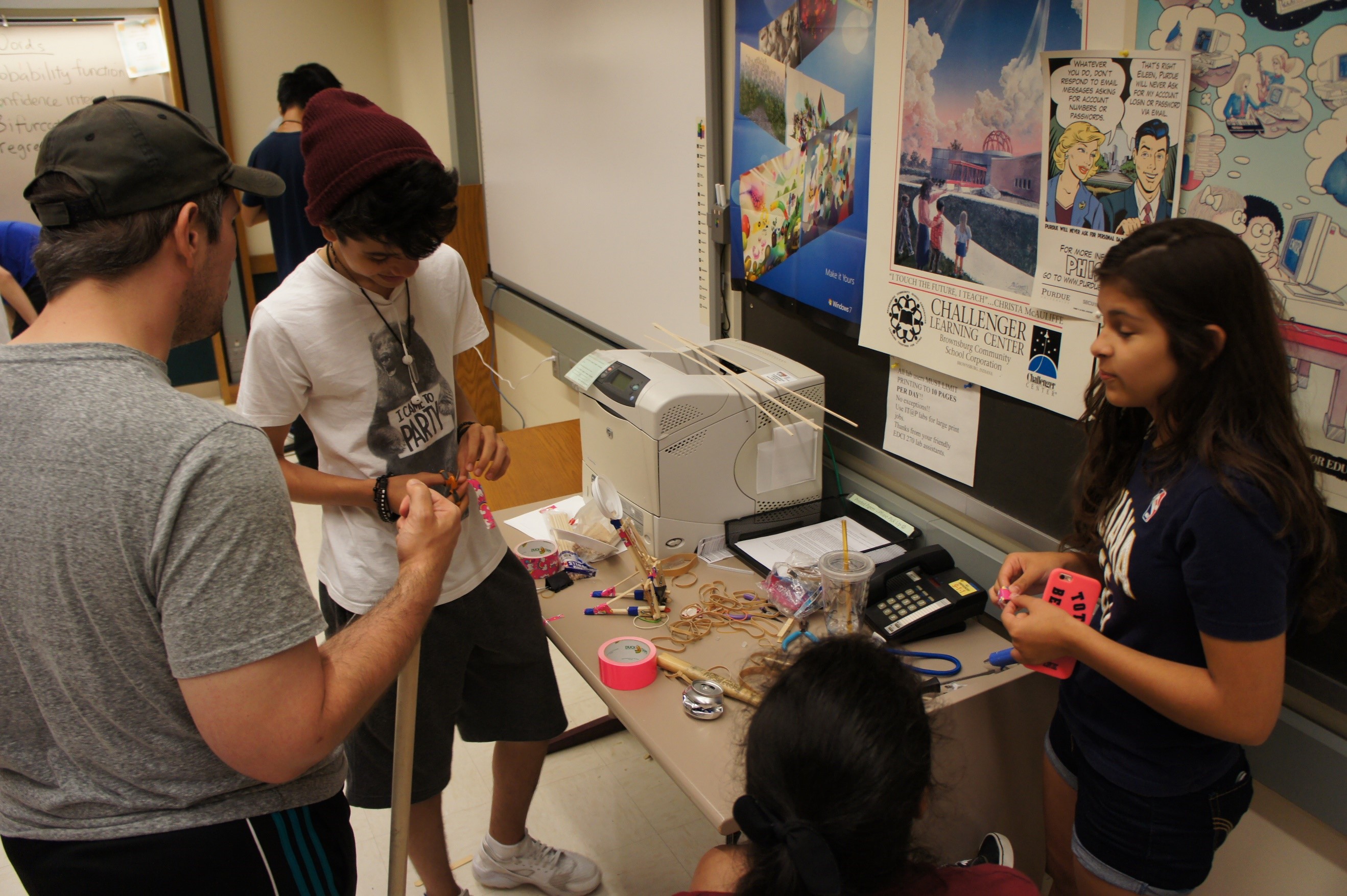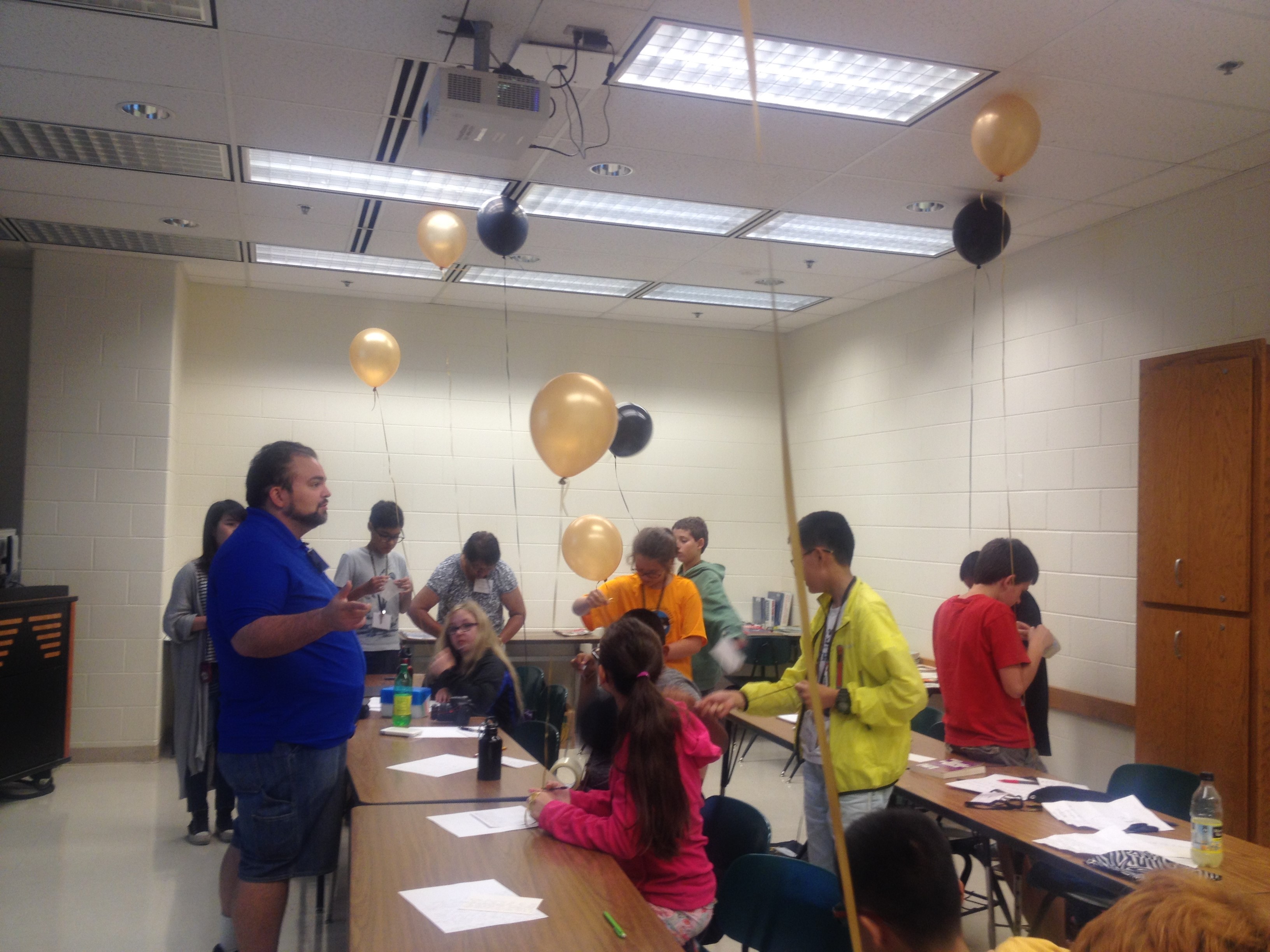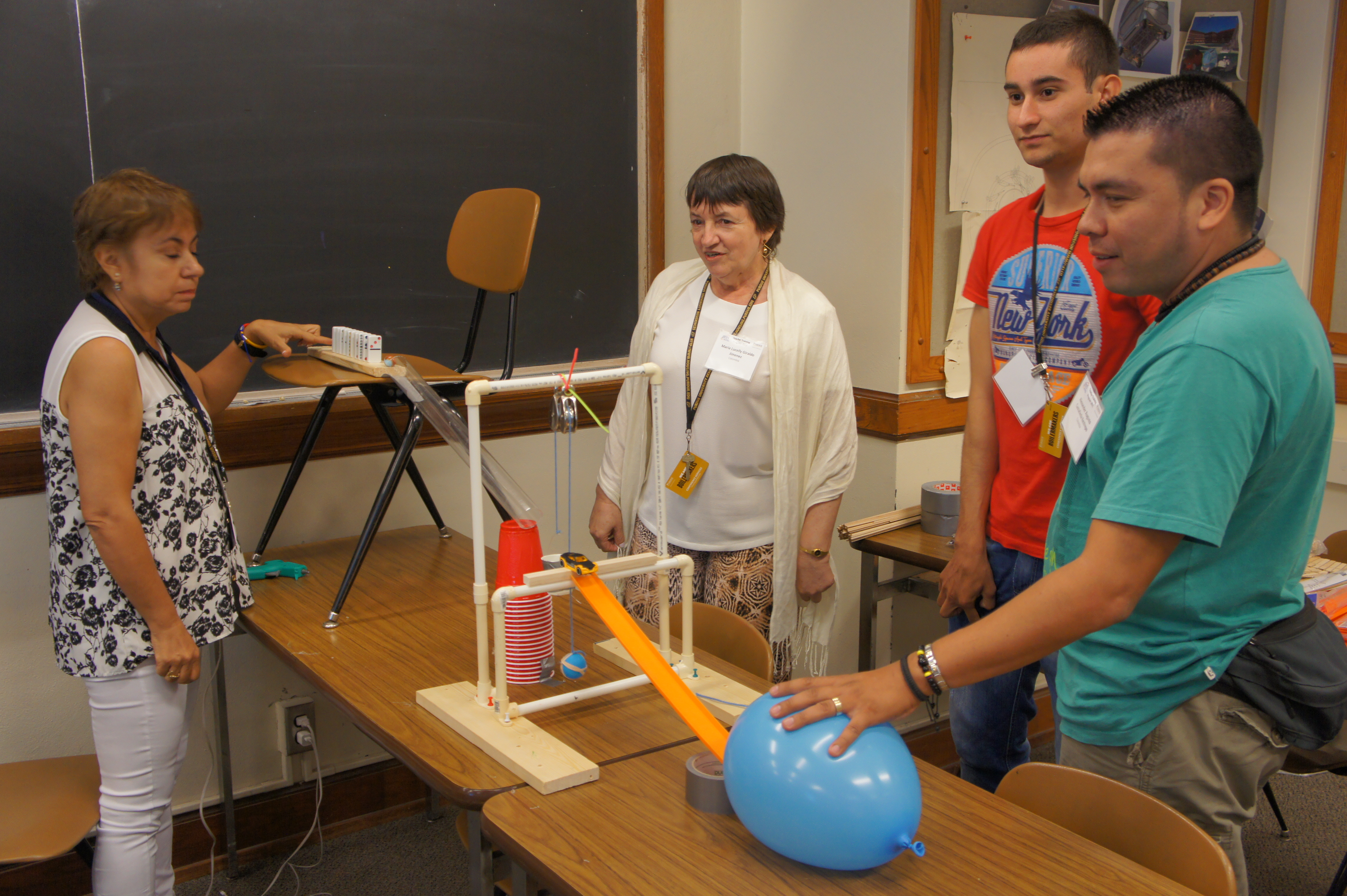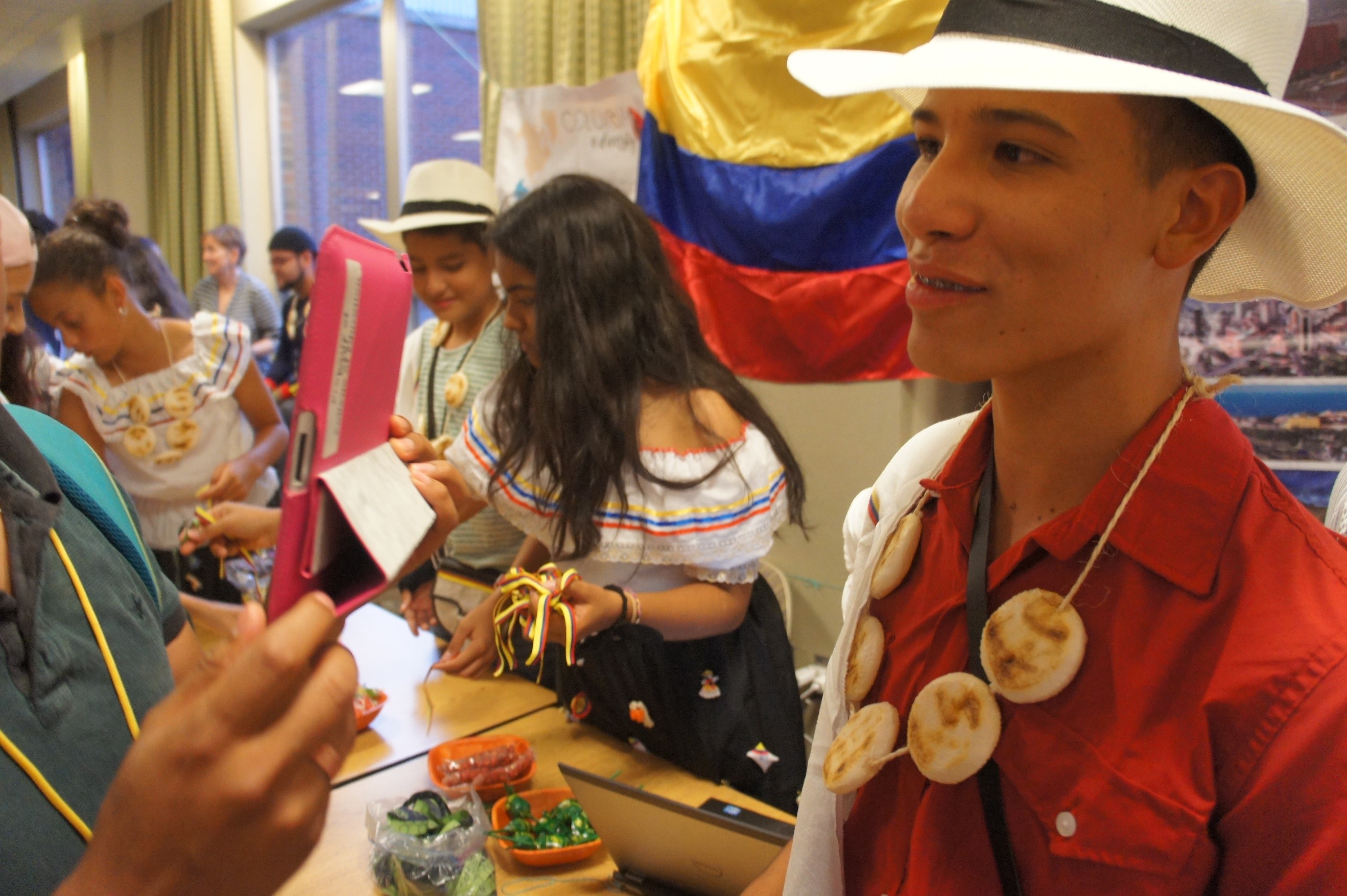

When education is the same for every student, being smart, creative, or talented can become a burden. Outstanding children may be isolated by their peers, feel the need to underachieve to improve social acceptance, or become bored which may make them appear lazy. In other words, without a proper atmosphere, children who in the future could become leaders, problem solvers, or innovators may be unable to achieve their full potential. This loss of human capital can be reduced with Gifted Education practices. The Gifted Education Resource Institute (GERI) at Purdue is providing Colombian children with an opportunity to develop their skills at their summer camps.

Boys and girls participating at GERI camps come from both public and private schools in Colombia. Along with GERI, Ruta N and the Colombia-Purdue Initiative (CPI), through their program called 'Interchange', have brought 28 kids from public schools in the last 3 years. This endeavor is aligned with GERI's goal to work with underserved and unrecognized populations to protect human capital from vanishing due to culture, language, or economics. "We forget that there is a lot of talent that goes undeveloped. If we don't make a concerted effort to find this talent, we lose it," explains Director of GERI, Marcia Gentry. GERI has also collaboration agreements with private institutions in Colombia, like the Columbus School, an international education institution based in Medellín.
GERI camps help kids discover new passions, choose a career path, and gain confidence. Diego Sanchez, one of GERI former students, is close to completing his undergraduate degree in Electromechanical Technology. "I had always dreamt of pursuing a career in mechanics, and the classes at GERI reinforced my decision", he notes. The experience also sparked his love for the English language and helped him get an internship at Noel, one of the largest food companies in Colombia. In the same way, Andrés Parra, a Colombian PhD student researching the experiences of Colombian students in GERI summer camps, describes how a student not only went on to follow a career path in STEM (Electromechanical Technology), but also felt inspired to offer a free math and physics class to kids in her community. "She teaches science through physical education to extend the benefits of her experience to the community." Two other students, one in mechatronics engineering and one in statistics, say that their participation in the camps has motivated them to pursue an academic career in research and education. They are also now more interested in learning other languages and becoming familiar with other cultures. Students from private schools also have seen an impact after their participation in GERI camps. Carolina Zuluaga, representing the Columbus School, explains, "I remember a student who used to doubt much about his own abilities and was afraid of going to a summer camp by himself. After his participation, he gained self-esteem and confidence, and his parents noted positive changes in his autonomy towards academics and life in general."

GERI camps also give students an eye-opening and global experience by allowing them to interact with like-minded but very different people. Students get a passport, board an airplane, and land in Indiana to meet people from countries like China, Greece, and Korea. "When kids come to Purdue and get an opportunity to stay with other bright kids from around the world and across the United States, it changes them. It opens doors that they did not know existed," observes Marcia Gentry. In the same way, Manager of Project Interchange, Alejandro Roldán, and Carolina Zuluaga explain how the experience has affected the kids. "All the teenagers we have taken to GERI have had an important influence in their lives. It creates a multicultural atmosphere and the opportunity to develop a global mindset and international relationships," notes Alejandro. Carolina for her part adds, "the experience gives students an idea of college life, gets them closer to their interests, and enriches their lives just by spending time out of home and with people from different countries. They grow in all aspects." Last year, the camp had 450 kids from 11 countries and 25 different states in the US, but Marcia explains it is not a diversity camp: "We are not talking about how we are different, we are really talking about how we are the same and different, in the context of an area of interest, so there's a magic that happens."
Gifted Education Strategies to Improve Traditional Education Classrooms
Talent development programs are rare in Colombia, but strategies can be implemented to help kids improve their skills. "In Colombia, there is not much being done for gifted education, yet" says Marcia Gentry. "I was a keynote speaker at a first annual congress on gifted Education last fall (2016), but it was run by a private company, not by the government. Institutions like the Columbus School do a really good job at educating the kids, but they don't necessarily have gifted education programs." The Ministry of Education developed technical, administrative, and pedagogical guidelines to educate gifted students in the frame of inclusive education, but they do not exert any implementation or control. "There is no law to guarantee the identification of gifted students nor measures to place them in programs to approach their special needs," mentions Andrés Parra. There are some schools offering services for gifted students, but they are not many, let alone in the public sector. However, gifted education strategies can be implemented to help advance education in Colombia, by improving public schools, teachers' preparation, and access to opportunities.

Improving public schools. Gifted education strategies implemented by the government could have a large impact in the population, as 81% of schools in Colombia are public (2015). "The idea with the relationship GERI has with the Country of Colombia and Purdue is to increase the number of Colombians in the STEM pipeline," explains Marcia Gentry. Nevertheless, this can be hard to achieve without improving public schools first. An example of the potential of the kids from public schools is the performance of the students from the Interchange program, who go through an extensive selection process to participate in GERI. "They are bright kids able to handle the rigor, they are motivated, and they want to be here. Their biggest barrier is that their English is not very strong," adds Marcia. "There's quite a chasm between what kids who are able to go to private schools get and kids who go to public schools get, with even some of the public schools not having degreed teachers," she continues. "We could work on strategies with schools or the Government of Colombia to define a baseline."
Improving teacher preparation. "If the focus is on how to develop student talents, one of the things that could happen in Colombia is an emphasis on teacher preparation and education," Gentry continues. Having a good class requires teachers not only to lead the classroom and impart their knowledge to the children, but also to understand and approach the different needs of the students. Providing basic training for all teachers on gifted education methodologies helps identify and more appropriately educate gifted students in regular classrooms. GERI believes all teachers should be able to act as 'talent development scouts', helping all students in the classroom improve their skills and think and solve problems at higher levels. "We have a model called Total School Cluster Grouping. In that model, we train all teachers on gifted education strategies and talent development because we do not think that only the teacher who has been designated as the teacher of the gifted will encounter gifted children," she explains. For example, a quick test before the class begins could help teachers discover what kids already know about the given topic. If the test shows they know the material, they can focus on other more challenging work. This allows them to use their time in a more productive way. Teachers in Colombia can access training on gifted education strategies online, through licensure courses translated to Spanish and offered on GERI's website.

Improving access to opportunities. Hosting more STEM and global camps, sponsoring more children to go overseas, and fostering more international alliances between schools are some ways to expand opportunities to more children. First, by organizing camps in Colombia, the program's reach can be expanded to host foreign children. "I believe the lessons learned from GERI camps could help us do similar things locally, with private and public schools", says Alejandro. "Bringing the knowledge and experience of GERI friends may allow us to host multicultural camps in STEM," he adds. Second, getting more sources of funding could allow more students to travel and participate in international camps to bolster creative thinking and an international mindset-important for a country competing in the global marketplace. "I had a meeting with Antioquia's Secretary of Education, to propose that they fund the trips while our friends from Purdue contribute with the scholarships," Alejandro mentions. Last, more schools in Colombia following the example of The Columbus School and forming international alliances with institutes like GERI, could mean more opportunities for the children to develop this outlook.
Support from private sector would help these initiatives flourish and make a difference in children's lives. "There is broad interest and opportunities in Medellín, but we are lacking some synergy between institutions and more support from private companies," notes Alejandro. In a recent article, CPI newsletter covered the story of Bonnie Prado, a Purdue student who brought STEM camps to teenagers in Chocó. She indicated that funding for her initiative was somewhat hard to find.
Education in Colombia has still a long way to go. One approach is to improve it with gifted education strategies, inside and outside the classroom. Thanks to the efforts of entities like GERI, CPI, and Ruta N, opportunities have been shaped to help creative, talented, and motivated children make a difference in the future of Colombia and the world.

Students from different countries making friends with one another in their counseling groups
Last modified: December 4, 2023